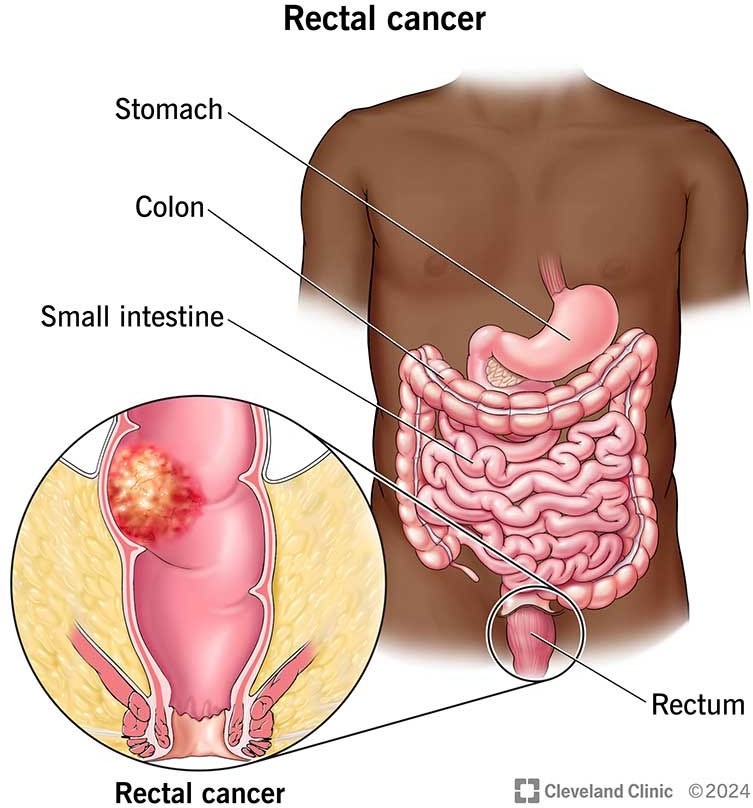A nurse is planning care for a client who requires screening for rectal cancer. Which of the following tests should the nurse anticipate in the client's plan of care?
Upper GI series
Colonoscopy
Endoscopic retrograde cholangiopancreatography (ERCP)
Upper GI endoscopy
The Correct Answer is B
Choice A reason: An upper GI series is a series of X-rays used to examine the esophagus, stomach, and small intestine, not the rectum or colon.
Choice B reason: A colonoscopy is the most appropriate test for screening for rectal cancer as it allows for the
examination of the entire colon and rectum and can also facilitate the removal of polyps.
Choice C reason: ERCP is primarily used to diagnose and treat conditions in the liver, gallbladder, bile ducts, and pancreas, not the rectum.
Choice D reason: An upper GI endoscopy, or esophagogastroduodenoscopy (EGD), is used to examine the lining of the upper part of the gastrointestinal tract, which includes the esophagus, stomach, and duodenum, not the rectum.
 |
Nursing Test Bank
Naxlex Comprehensive Predictor Exams
Related Questions
Correct Answer is D
Explanation
Choice A reason: Choosing sugar-sweetened beverages is not recommended for clients with kidney stones as they
can lead to weight gain and increase the risk of stone formation.
Choice B reason: Limiting calcium intake is not generally advised for kidney stone prevention; in fact, adequate
calcium intake is important to bind oxalate in the gut.
Choice C reason: Drinking only 1 liter of fluid each day is insufficient; it is recommended to drink enough water to produce at least 2.5 liters of urine daily to prevent kidney stones.
Choice D reason: Filtering urine each day can help to catch stones that are passed, which can then be analyzed to determine their composition and guide further treatment.
Correct Answer is D
Explanation
Choice A reason: Magnesium-containing antacids typically cause diarrhea rather than constipation due to magnesium's ability to draw water into the intestines.
Choice B reason: Antibiotics can affect gut flora and potentially cause diarrhea. While some antibiotics may lead to constipation, it is not as common as diarrhea.
Choice C reason: Anticholinergics/antispasmodics can cause constipation because they inhibit the muscle movements in the gastrointestinal tract necessary for bowel movements.
Choice D reason: Opioid narcotics are well-known to cause constipation as they reduce gastrointestinal motility, leading to slower transit times and increased water absorption from the stool.
Whether you are a student looking to ace your exams or a practicing nurse seeking to enhance your expertise , our nursing education contents will empower you with the confidence and competence to make a difference in the lives of patients and become a respected leader in the healthcare field.
Visit Naxlex, invest in your future and unlock endless possibilities with our unparalleled nursing education contents today
Report Wrong Answer on the Current Question
Do you disagree with the answer? If yes, what is your expected answer? Explain.
Kindly be descriptive with the issue you are facing.
